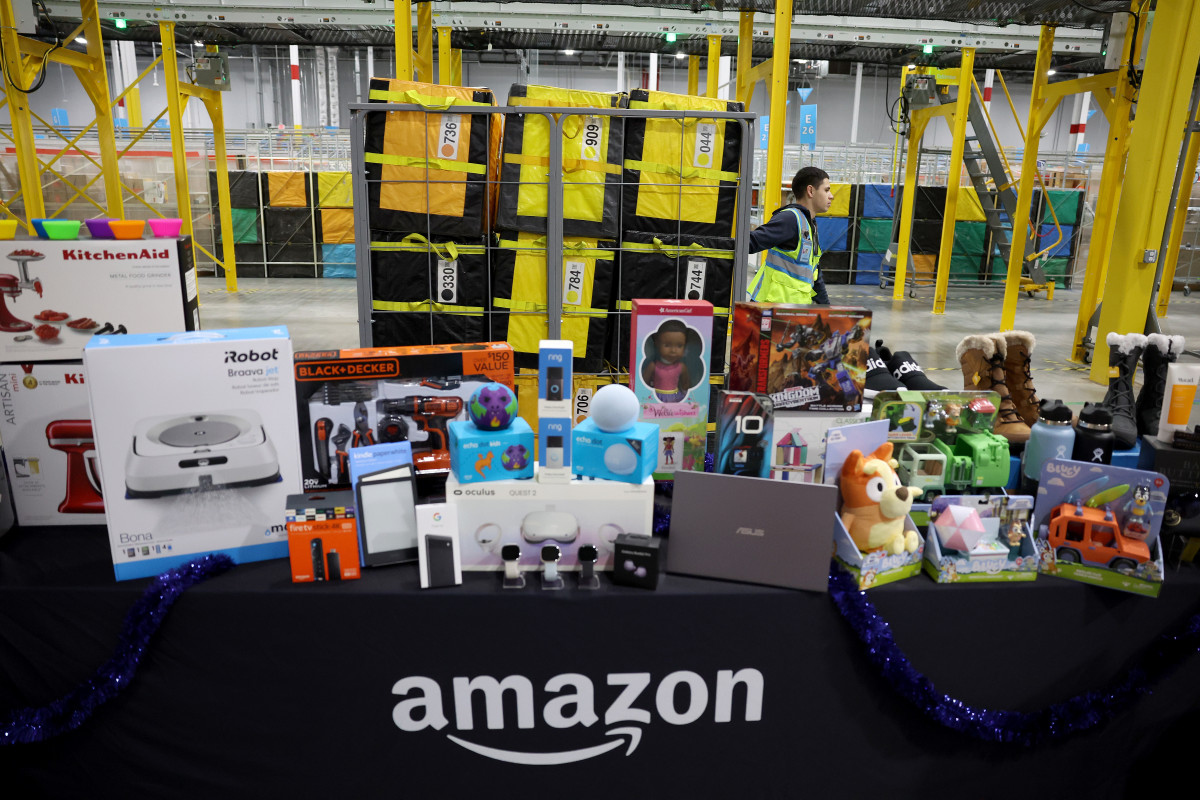
Amazon (AMZN) -) is gearing up for what is almost certain to be another successful day of deals in October.
The retail giant's first set of 2023 Prime Days, which ran July 11 and 12, brought in a record $12.7 billion in sales.
DON'T MISS: Target's answer to Amazon Prime Days is here — these are the top deals
Even Amazon executives, it seems, were impressed at the blockbuster success in July.
"The first day of Prime Day was the single largest sales day ever on Amazon," Amazon wrote following the event, adding "Prime Day 2023 was also the biggest Prime Day event ever for independent sellers, whose sales growth in Amazon’s store outpaced Amazon's retail business."
So, from October 10-11, Amazon will host a second set of days called October Prime Big Deal Days, which by all accounts is expected to give customers early access to holiday-shopping sales. Think of it like an early-access Black Friday event, except it's available only to Prime members and you don't have to wake up early for doorbusters. In fact, you can shop it from the comfort of your own couch. It's the kind of American ingenuity and convenience that customers around the world have now come to expect.
Many of us have also come to expect a degree of trust and safety from a giant like Amazon. Customers store sensitive information like credit card, addresses, emails, names, phone numbers, and more under their accounts, trusting that Amazon will be good stewards with the data and protect it from malfeasance.
And, typically, all of that information is in fact safe within Amazon's deep and incredibly complicated labyrinth of data storage capabilities. Over the weekend, however, Amazon issued a warning to customers who may have been on the receiving end of news that looked too good to be true.

Amazon issues a warning to some customers
Some customers have reported receiving emails purporting access to gift cards they had not purchased. Many said they received up to three emails detailing the purchase of a gift card to Google Play, Mastercard or Hotels.com via Amazon. Upon contacting customer service, though, these customers were told that "an error" caused the confirmation emails and they should immediately disregard the notice.
Cybersecurity social media presence Mike Grover wrote on X that he'd been made aware of the blip on Saturday morning, and posted several screenshots of the purported communications.
Over the last 2 hours, a LOT of people got these emails from Amazon about gift card purchases for https://t.co/BaBdKRHVfj, Google Play, and Mastercard.
— MG (@_MG_) October 1, 2023
The email seems legit, but the purchases don’t exist.
🧵1/n pic.twitter.com/oWdpGoGW3x
Amazon promptly cleared up the confusion with a short email to the customers affected, as well as an official statement.
"You may have recently received an email from Amazon relating to a purchase of gift cards from Amazon.com," a screenshot of an email reads. "This email was sent in error. No action is required and we apologize for the inconvenience."
"An error in our system resulted in an order confirmation email being sent to customers who did not purchase a gift card. We are emailing these customers to inform them of the error and apologize for the inconvenience," an Amazon representative said.







